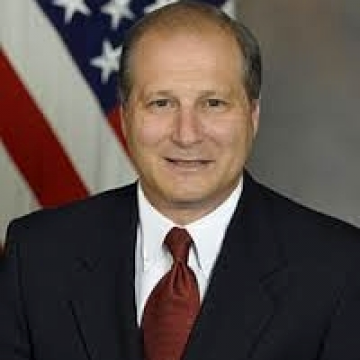Ghosts at the Banquet
Spectres from the past attended the 2024 Washington NATO summit, writes Eric Edelman
The Vilnius NATO summit of 2023 was stalked by a spectre. How would the allies deal with Ukraine’s NATO aspirations while its vaunted counter-offensive had gotten off to a sputtering start, amidst nuclear saber rattling by Vladimir Putin and his henchmen, eliciting in turn a focus on “escalation management” by Joe Biden’s national security team. Vilnius ended, as all NATO summits are fated to end—as a success, despite unseemly recriminations between the Biden team and President Zelensky’s advisors.
This year’s Washington summit took place in the suffocating, sultry heat and humidity of a typical D.C. July. It gridlocked the city with intersection closures to facilitate motorcades of 32 NATO national leaders plus key Indo-Pacific allies. It was stalked by two quite different phantasms—the spectre of weak leadership among Western leaders, notably including host President Joe Biden, and what former Secretary of Defense Robert Gates has characterized as the most dangerous and challenging international security environment since World War Two.
The questions about Ukraine which had roiled Vilnius were resolved without the contention and ill will of a year ago. The final Washington summit communique saluted the valor of the Ukrainian people for resisting Russian aggression, noted that Ukraine’s path to membership and integration with NATO was irreversible and announced additional assistance from the US and other allies to build a “bridge” for the nation’s eventual accession to the North Atlantic Treaty. The new assistance includes air defense systems, a NATO training mission (to take place outside of Ukraine), a permanent civilian NATO Representative to Ukraine, a pledge of 40 billion Euros in long-term assistance to Ukraine by European members of NATO, and a joint NATO-Ukraine training center to apply the lessons learned from warfare in Ukraine and increase the Ukrainian Armed Forces interoperability with NATO. Biden also announced a “Ukraine Compact” which memorialized the bilateral security agreements, pledged at Vilnius, that have been reached by 22 of NATO’s 32 members plus the EU. These steps met many of President Zelensky’s needs and much of his wish list. Left unanswered were questions about Ukraine’s ability to use long-range guided strike weapons like the ATACM missiles, which the US has finally given Kyiv, against legitimate Russian military targets inside Russia proper (as opposed to occupied Ukraine and Crimea where they are permitted under the rules set by Washington).
